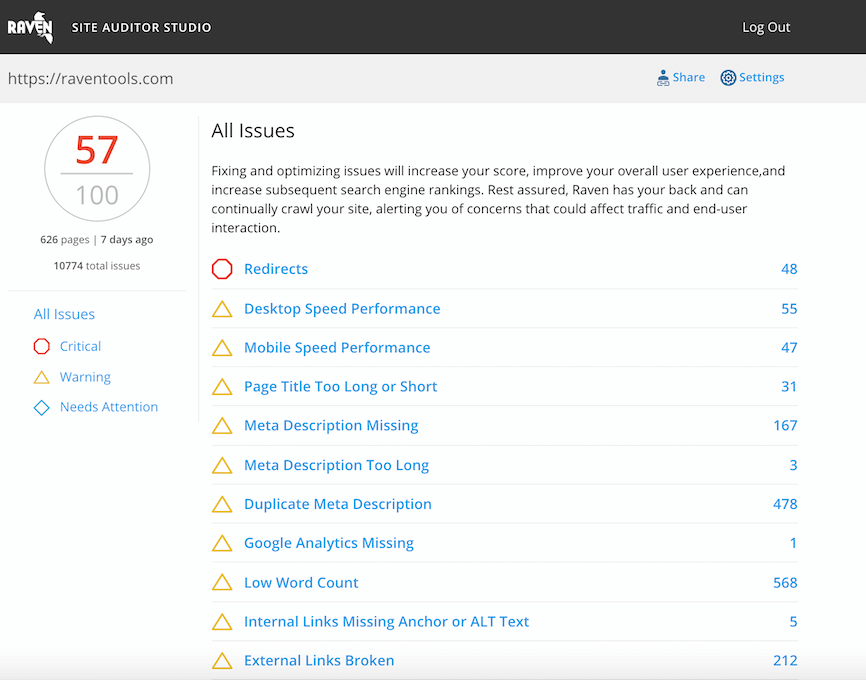This article was contributed by PPC marketing professional Andrew Lolk.
I recently started a new AdWords campaign for a project. It’s a price comparison service website that imports prices from all vendors in an industry.
Needless to say, the website was hyper-optimized for both AdWords and SEO. I was excited to get the AdWords campaigns started so I could start showing everybody how it’s done.
But it wasn’t that simple. My campaign took weeks to get off the ground – a pattern that I’d seen hundreds of times before. I thought that with the website being well optimized for AdWords, I could skip over the regular incubation period that normally precedes a new AdWords campaign.
That wasn’t the case, however. I had to go through the same slow period before my campaign started picking up speed – just like everyone else does.
So what’s the deal with the incredibly-slow-to-get-off-the-ground AdWords campaigns? Doesn’t Google want to make money off my campaign as fast as possible?
Here’s the lowdown on what to expect in the first 4 weeks of a new AdWords campaign – and why the results might not happen as quickly as you’d expect.
Google is cautious with new campaigns
Based on my own experiences, I’ve discovered just how cautious the company can be around its biggest income source.
First of all, it’s important to realize that when you start a new AdWords campaign, you’re not yet being ranked on the most important metric – click-through-rate (CTR).
Your click-through-rate is the biggest factor for determining how relevant your AdWords campaign is for the audience that it’s being shown to. Without this consideration, Google is bound to calculate secondary factors such as:
- Keyword to ad relevancy
- Ad to landing page relevancy
- Website load time
- Historical account performance
If Google can’t grade your campaign fully, then it’s dangerous for them to allow you to be shown equally with other AdWords advertisers with proven track records (aka high Quality Scores).
By giving you the number 1 ad spot, you will attract a lot of impressions. But if no one clicks on your ad, then Google will lose money.
Google has recognized this danger and seems to implement a small filter on new AdWords campaigns until it can start measuring the click-through-rate of the campaign.
Two spikes to look for
When first activating your campaign, you will see two large spikes in your performance.
Normally, you see the first spike within 3 to 7 days of starting your campaign. (If you don’t witness a spike, keep reading – we’ll go over some elements you might need to review).
However, it’s not until 14 to 21 calendar days later that your campaign really starts picking up momentum in relative comparison to its full potential.
Of course it’s not always Google’s fault that your new campaign is not working correctly. If you’re not seeing a steady increase within the date ranges mentioned earlier, then it’s time to review your campaign for quick performance gains.
Here are four possibilities worth exploring.
4 areas to optimize If your AdWords campaign isn’t starting off with a bang
1. Your keywords or ads aren’t working
If you have 2-3 ads per ad group, some of the ads you’re testing might be lacking in performance.
I continue to be amazed at how some ads I created can tank so impressively and others be so successful.
Sometimes, you’ll be able to find ad groups where one ad has a good CTR (in general, higher than 2%) and the other ads in the ad group are below 0.5%.
By pausing the lower-performing ads, you’ll instantly rack up performance gains for all keywords in the ad group – which can positively influence your Quality Score.
I advise performing this review 7 days after to make sure you’re not hurting your campaign performance unnecessarily.
Limit your ad testing in the first month of your AdWords campaign if it’s brand new. It will in some cases be more efficient for you to keep one ad with a high CTR active and moderate conversion performance in order to get a higher Quality Score thereafter.
Once you have an established good Quality Score, then you can start testing ads more systematically.
2. You’ve set the wrong bids
If you have set the wrong bids at the beginning of your campaign, then it won’t matter how much time you wait – the campaign will never perform.
Some often-overlooked bidding mistakes include:
- Bidding too low: You can tell if you’re bidding too low by checking your average position. If your average position is below 6, you’re often bidding too low. Consider increasing your CPC bid or pausing the keyword if the increase in CPC will make the keyword unprofitable.
- Bidding below first page bid estimate: This can often be the case for new advertisers who don’t know how to set the bidding (or revise it). If you have a lot of keywords where your bidding is below the first page bid estimate, consider increasing your CPC.
- Bidding too high: If your bidding is too high and your budget is in effect limited, you risk not getting as many clicks out of your daily budget as you could with a lower bid.It might sound contradictory (I’ve had to explain this two or three times to new clients and account executives), but by decreasing your position and CPC, you’ll sometimes see an increase in clicks.
3. Your budget is being met too early
The budget is a very delicate part of an AdWords campaign – especially for small businesses.
Most small businesses set their budgets relatively low and are then met with high bidding requirements that ultimately cripple their chances for success in AdWords.
If you’re bidding for a keyword for one of the top 3 positions and your budget is being exceeded every day, then you should consider:
- Lowering your overall CPC on high-spending keywords
- Pausing high-spending keywords to allow cheaper keywords to get more clicks
- Pausing broad match keywords
4. Your keywords have low search volume
If your initial keywords don’t have a lot of daily searches, then your campaign will never really “take off”.
Especially if you don’t see the second spike around 14-21 days into activation, it might be time to review your keyword list and prune keywords with low search volume.
Do this either by finding all keywords labeled “Low Search Volume” or checking your list of keywords in the top 3 average position. If they’re in the top 3 but not generating more than a couple of clicks per day each, then the keywords aren’t big hitters.
Big hitters will draw in scores of clicks per day (in a top 3 position) and they’ll often be able to draw in 100’s of daily clicks from a #1 position.
Revise and try again
Don’t be too worried if your campaign isn’t picking up on day one. But don’t be afraid to take action if you’re lacking on desired results after 7-21 calendar days.
AdWords is one huge playground, and you’ll quickly find that you need to revise your approach often – several times in the initial phase, as well as again in the later stages of your AdWords campaign.
Andrew Lolk is a paid search/social marketer, speaker, and agency owner since 2010. He’s the founder of SavvyRevenue: a PPC agency solely focused on managing paid search for mid-sized ecommerce stores looking to scale their PPC advertising profitably.

Analyze over 20 different technical SEO issues and create to-do lists for your team while sending error reports to your client.





I think patience is the most important thing when you are in
initial stage of adwords. If you done everything write then clearly Google will
boost your ad and you’ll meet your expectations after some time. Just keep tracking
your ads cautiously and keeps them optimized.
Hi Mark,
I complete agree. The worst thing you can do is to start changing your AdWords campaign just days after it’s launched. You’ll end up in a circle where you keep making changes, but never wait to see the full effect.
Happy New Years,
Andrew Lolk
Great read Andrew, keep up the good work!
totally disagree. especially when you are using adwords coupons. you wanna see results. and so does google. its all about the broad match
But you’re not going to get results with either broad match or coupons. Basing your AdWords campaign off a coupon will only lead to failure and disappointment.
The guidelines above is intended for account managers who have adequate budgets and a long-term focus. Short term rarely work in AdWords.
Superb.
I’m just starting out on a PPC campaign so this was really useful, thanks!
I just started my campaign after advertising in facebook and this is a whole different game. Thank you for your post, I was asking myself the same question on day 2 of my campaign, does google not want my money? I’ll wait patiently to see if my campaign picks up.